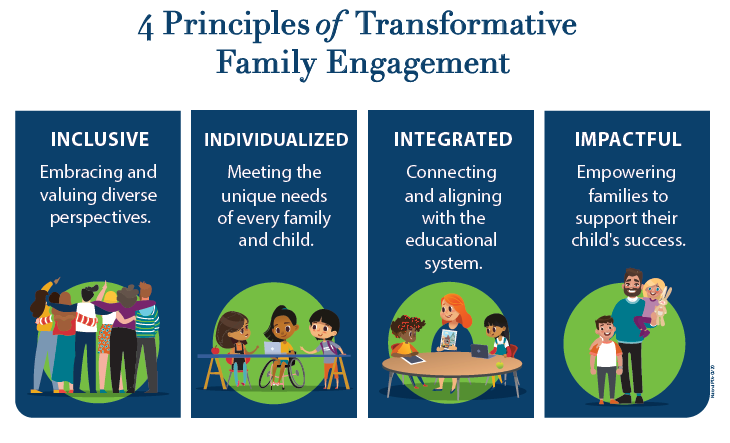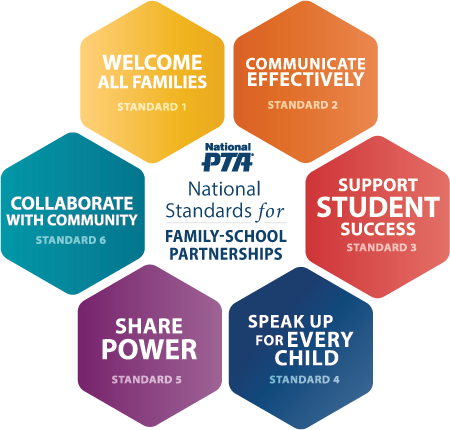
Families are essential partners to schools...
…in the shared mission to help every child reach their full potential.
PTA’s National Standards for Family-School Partnerships set the bar for how schools and parent organizations work together to support student success.
The Standards have contributed to greater awareness and capacity for improving family-school partnerships across the scountry and internationally for over 20 years.

Parents know that they play an important role in their child’s success. But traditional family engagement practices don’t always meet the needs of each and every family, not treat them as equal partners in ensuring their child’s success. Family- School partnerships often focus primarily on academic success, but whole child development is also an essential part of the conversation.
The solution? Transformative Family Engagement.
Transformative family engagement is a shared effort of families, schools, and community leaders to advance programs, practices, and policies that empower families to make their child’s potential a reality.
The Four I’s of transformative family engagement outline how your PTA can become more inclusive, individualized, integrated, and impactful in its approach to family engagement.
